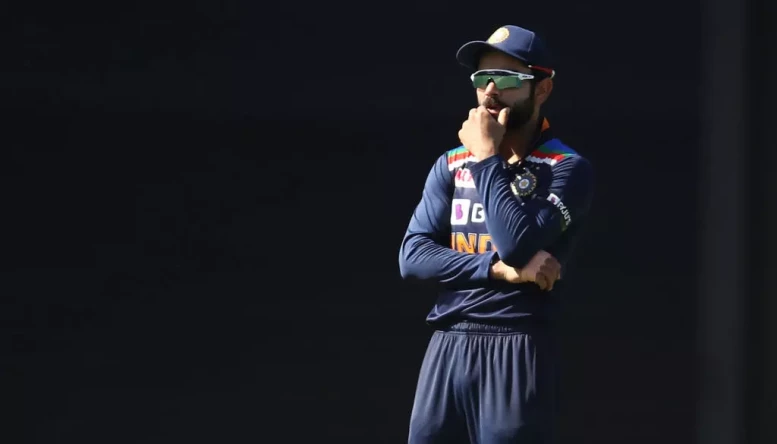T20 World Cup 2022: Bangladesh's Nurul Hasan accuses Virat Kohli of 'fake fielding'
The tense match went down to the wire, with Nurul Hasan failing to hit a six with the last ball that would have levelled the score. The game was marked by controversy
 ‘Fake fielding": Virat Kohli mimed a relay throw
‘Fake fielding": Virat Kohli mimed a relay throwLitton Das, Bangladesh's top scorer, was sent off after slipping twice in wet conditions after the rain break.
Nurul Hasan pointed to another moment of frustration following the match. "You saw that we had to play on a wet field, but there was also a case of wrong fielding which was also not to our liking," he told the press after the match.
The incident Nurul Hasan referred to occurred in the seventh hour of the chase. That played a blow into the bye-line, and when Arshdeep Singh threw in the deep to the keeper, Virat Kohli mimed a relay throw at the non-striker's end even though he did not have the ball. Had the umpires adjudged this as "fake fielding", India would have received a five-run penalty, and the ball would have been re-bowled. Bangladesh ultimately fell short by five runs of tying the game.
What is the 'fake fielding' law?
The 'fake fielding' law was introduced in 2017 to try and prevent fielders from deceiving or distracting opposition batters. MCC's Laws of Cricket manager, Fraser Stewart, said that the reason for introducing this law was that fielders were deliberately pretending to have the ball to fool the batters and prevent them from taking further runs. For example, a batter might see a slide and a feigned throw and decline to accept a second run. The batters would see a slide and a fake throw and decide not to take a second run. They would realize the ball had not been thrown too late to take the second run, which was considered unfair.
<blockquote class="twitter-tweet"><p lang="en" dir="ltr">Renowned Indian cricket pundit <a href="https://twitter.com/hashtag/HarshaBhogle?src=hash&ref_src=twsrc%5Etfw">#HarshaBhogle</a> has shared his take on the ‘fake fielding’ controversy that sparked off after the <a href="https://twitter.com/hashtag/INDvsBangladesh?src=hash&ref_src=twsrc%5Etfw">#INDvsBangladesh</a>, ICC Men’s <a href="https://twitter.com/hashtag/T20WorldCup2022?src=hash&ref_src=twsrc%5Etfw">#T20WorldCup2022</a> match. <a href="https://twitter.com/hashtag/ViratKohli%F0%93%83%B5?src=hash&ref_src=twsrc%5Etfw">#ViratKohli𓃵</a> <a href="https://t.co/jv7kp0QktR">pic.twitter.com/jv7kp0QktR</a></p>— Mirror Now (@MirrorNow) <a href="https://twitter.com/MirrorNow/status/1588124511353782278?ref_src=twsrc%5Etfw">November 3, 2022</a></blockquote> <script async src="https://platform.twitter.com/widgets.js" charset="utf-8"></script>
Is Virat Kohli putting pressure on umpires?
Virat Kohli, who has been playing exceptionally well in Australia, appealed to umpires for no-ball calls on more than one occasion throughout the tournament.
Incidentally, Virat Kohli was delivered a waist-high no-ball in the final over by Nawaz. Kohli hit the full toss into the mid-wicket stands and immediately signalled at Marais Erasmus, the leg umpire, for a no-ball. The two on-field umpires, Rod Tucker and Marais Erasmus got together and eventually signalled a no-ball. This decision proved to be decisive.
"Shakib is saying you do your batting, let the umpires do their work. He is saying the same things that we said. That if you are going to call something, you are going to put pressure on the umpire, then of course he is a big name. So sometimes umpires are under pressure," Waqar Younis said.
Editor's Picks
- 01
Brendon McCullum: England ready to be 'really brave' in team selection for India series
- 02
Diogo Jota inspires Liverpool surge as injuries fail to dampen Premier League lead
- 03
Cameron Norrie ready to go toe-to-toe with the big boys after stellar Australian Open run
- 04
Maxwel Cornet confident of scoring run after opening West Ham account